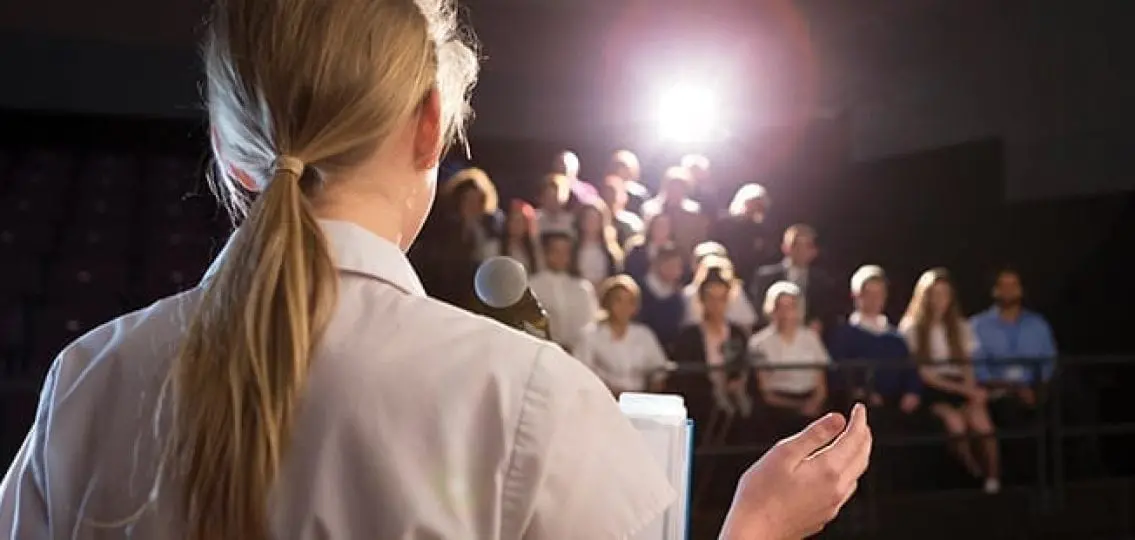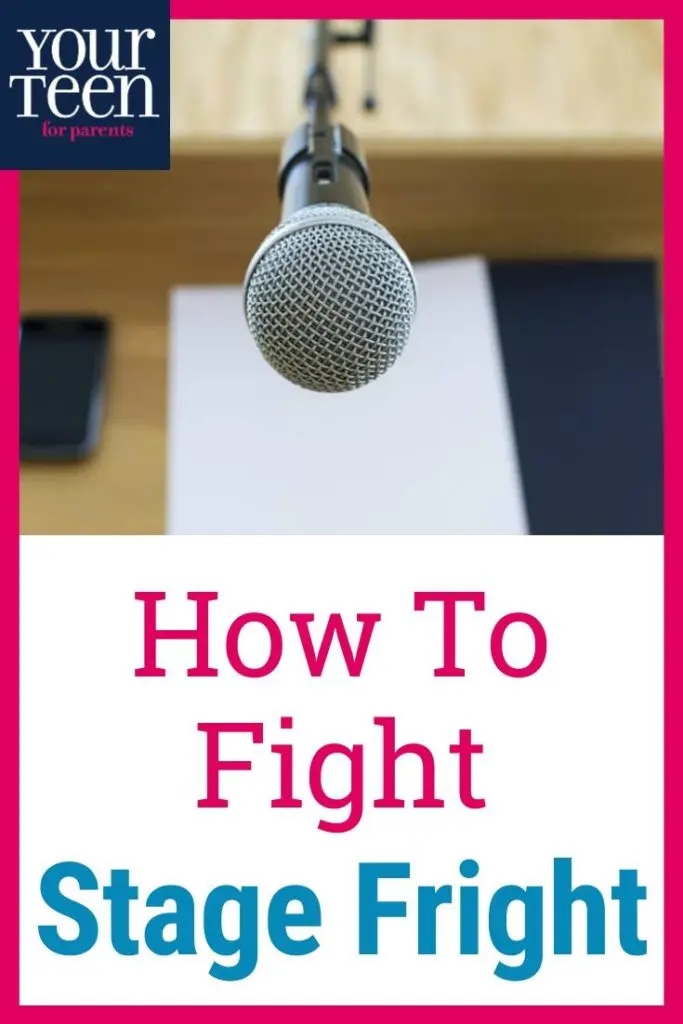If they haven’t already, your teen will soon come home with an assignment that most adults fear: public speaking. Speaking in public can be scary, but it’s a skill that will serve your child well at school and throughout their career. A Columbia University paper reports that the social anxiety that leads to fear of public speaking impairs graduation from college by 10 percent. And people who fear public speaking earn 10 percent less money than those who don’t.
The good news is, you can fight stage fright. Here are some public speaking tips to help your teen get through it:

How To Prepare for Public Speaking (For Teens)
Discipline
The first order of the day is to practice the speech over and over. Make sure your teen rehearses. The goal is not rote memorization but to become grounded in the material. Nothing beats preparation. The better they know it, the better they will feel—and the better they will perform.
Disquiet
It’s normal to feel nervous when you step up to the mic. Teach your teenager to reframe and rename that feeling. That nervous tension is actually the energy that will help them remember their lines, project their voice, and respond to the audience. They shouldn’t regard it as fear, it’s the fuel that will power their speech.
Discussion
Tell your teen that when they stand before a group, they are not delivering a formal pronouncement, it’s more like having a friendly discussion. They are sharing information— and the emphasis should be on the sharing. Having a conversational frame of mind makes the whole process less stressful and more enjoyable for both the speaker and the audience. Yes, when they give a speech, they are taking the conversation up a notch from a one-on-one, but it’s still a conversation even when it’s one-to-many.
Display
When someone stands up to speak, more than their words are on display. People will take in your kid’s appearance along with their delivery. Make sure your teen dresses to fit the occasion. Your teen doesn’t know what to wear on stage while speaking? Have them ask the person in charge what the dress code is and remind your teen to follow it. If unsure, it’s usually safer to be too dressed up than to be too casual. What they wear should not only fit the occasion, it should fit them. Heels that are too high or a belt that is too tight add unnecessary anxiety. Comfortable clothes help to make for a comfortable speaker.
Discourage the back channel
This means that members of the audience are asked to refrain from using their electronic devices during the presentation. To help in this regard, your teen should defer references to websites and other online resources until the end of the talk in order to reduce the temptation of audience members to search the internet during the speech.
Discern
Advise your young speaker to try to gauge the mood of the audience. That will require a bit of eye contact. Eye contact isn’t something scary, it’s the way people connect. When they look out into the room, what do they see? Does the audience look questioning or confused? Then you may need to explain your point a bit more. Are they restless? Maybe it’s time to bring your remarks to a close. Are they looking at you with rapt attention? Then—yes!—you’ve got this.
Discourse
Remind your teen to be prepared for questions. How do they do that? Have them anticipate the questions people are likely to ask—and formulate answers. And if someone asks something they can’t answer, that’s not a problem. Nobody knows it all. The appropriate response is, “I don’t know, but I’ll try to find out and share that information with you later.”
Disposition
Encourage your teen to go into their public speaking experience with a positive attitude. While you’re at it, make sure you show an encouraging face, too. Let your constructive optimism be the secret sauce that’s going to serve up a great delivery. Confidence is contagious. Project positivity for your teen and it’s likely that they’ll catch your upbeat attitude. Convey to them that they’ll be successful, and they will be more likely to believe it—and to be it, too.

Applying these tools will help your student bridge the distance between stage fright and public speaking poise. Confident public speaking is a skill that can distinguish your teen in all their academic or professional pursuits. And now that you’ve taught your teen how to fight stage fright, isn’t it time for you to discover your public speaking skills, too?





